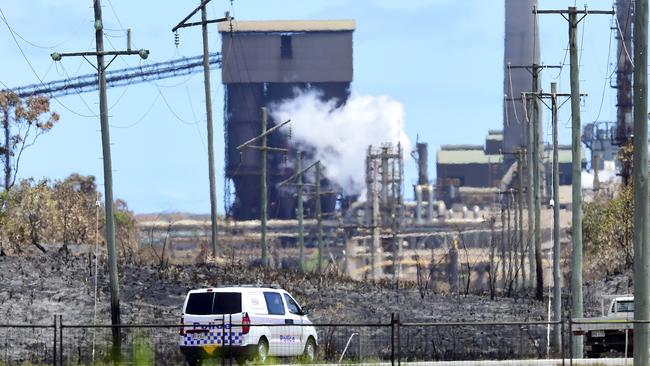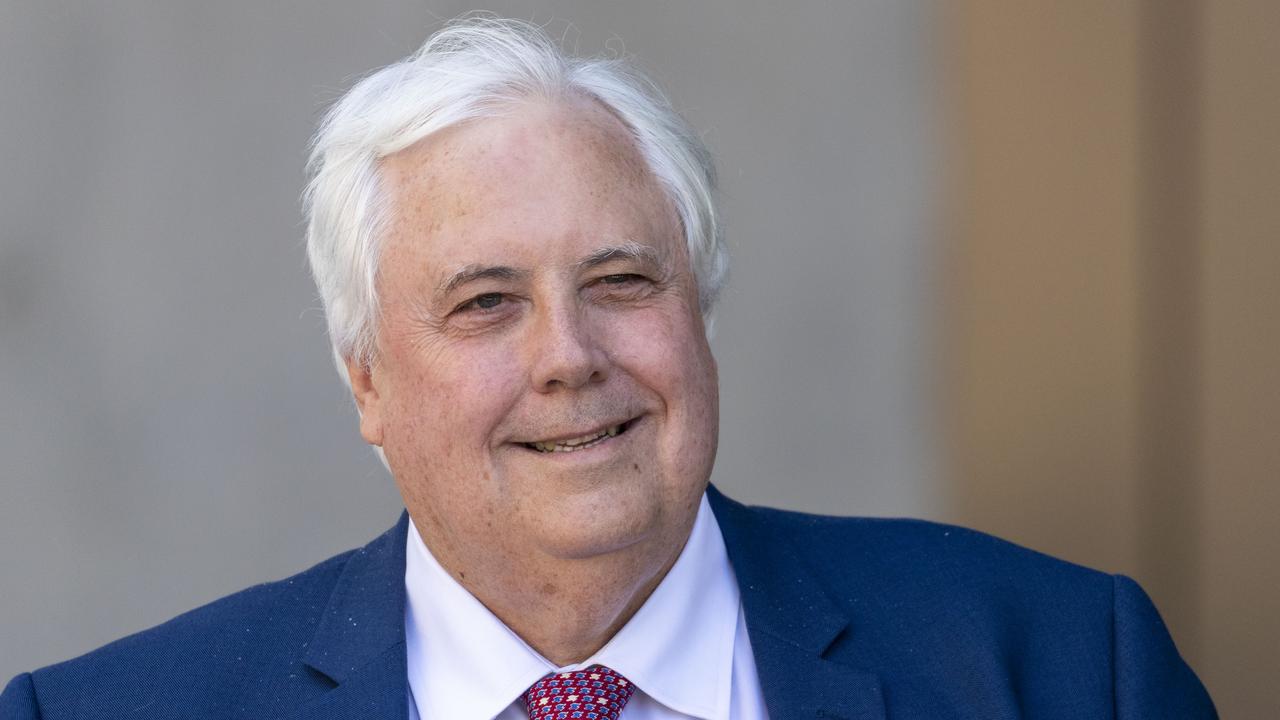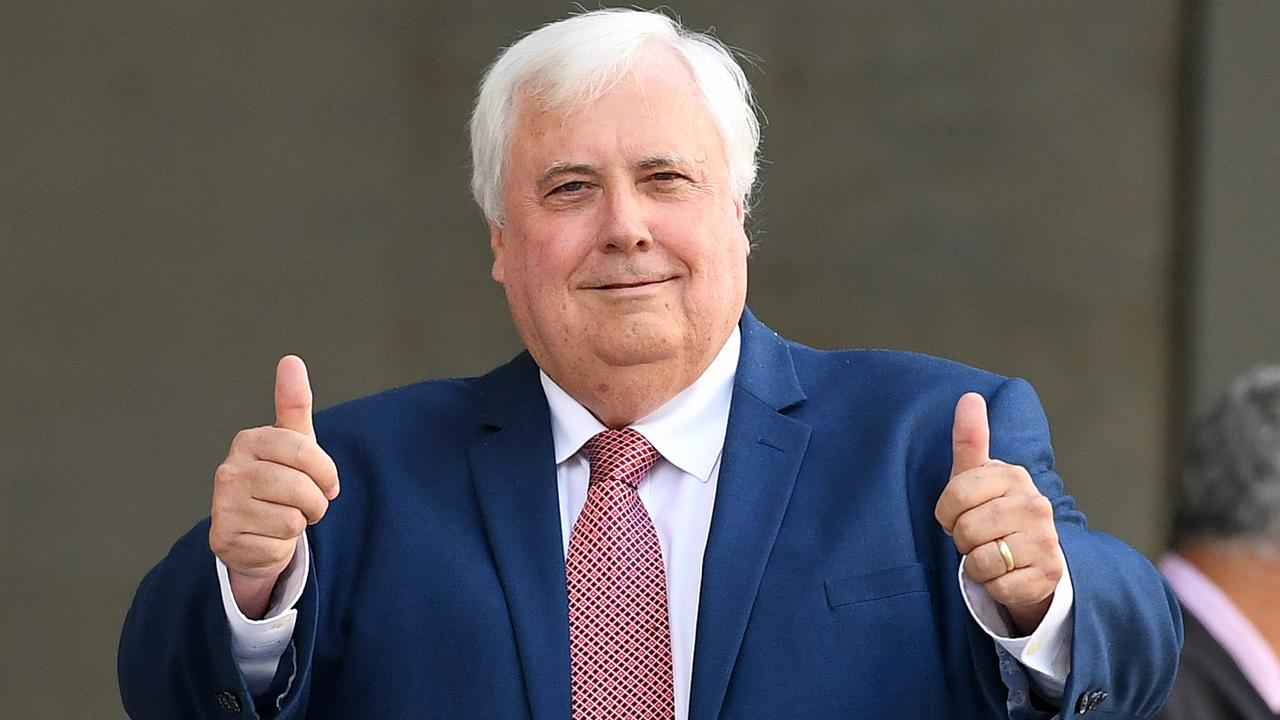Workers nickeled and dimed as Clive Palmer cleans up
Workers sacked at Clive Palmer’s nickel factory last week fear they will not receive their redundancy payments.

Sacked workers at Clive Palmer’s nickel refinery fear for their redundancy entitlements, as newly installed administrators begin investigations expected to probe more than $21 million in donations to the magnate’s political party, including a payment of $288,516 less than three weeks ago.
FTI Consulting is forensically examining the finances of north Queensland’s largest private employer, leaving Queensland Nickel’s remaining 550 staff terrified of losing their jobs.
In high-level talks at the Townsville plant yesterday, the voluntary administrators revealed the company owed creditors between $70m and $80m, more than the debts of $23m declared to a West Australian court late last year.
Workers were also warned the 237 staff sacked on Friday may be added to the list of creditors, forcing them to wait for the full or partial payment of redundancy entitlements.
In a further blow, staff have also been told the company might have stopped making compulsory employee superannuation payments in mid-November.
Queensland Nickel’s sole director, Mr Palmer’s nephew Clive Mensink, insisted it would be business as usual for the Yabulu refinery despite yesterday’s appointment of administrators.
“I believe QNI has the ability to continue its operations and trade out of administration,” Mr Mensink said.
The administrators were called in yesterday, only a day after Mr Mensink said the people of north Queensland should hail Mr Palmer as “a hero” for risking his money investing in the refinery.
Mr Palmer also made a bizarre defence at the weekend of Queensland Nickel money being ploughed into his Palmer United Party, saying that the funds had helped save manufacturing jobs that had been threatened by the carbon tax.
The administrators are likely to run a close eye over the controversial donations, which have unleashed a political storm around the member for Fairfax, a seat based on Queensland’s Sunshine Coast.
In the past two financial years, as the refinery struggled with sluggish nickel prices, more than $21m was donated to PUP, including a payment of $288,516 made on December 31, according to the Queensland Electoral Commission.
If Queensland Nickel collapses, liquidators could decide the payments were “uncommercial transactions” and seek to recoup them.
Ben Swan, state secretary of the Australian Workers Union which represents many of the refinery’s staff, said workers felt frustrated and betrayed by the donations.
“There’s a live question not just about the discharge of the director’s legal and fiduciary duties … but there’s a moral element to this as well,” Mr Swan said. “I think it’s beyond the pale (for) political donations … at a time when the very livelihood of workers is at stake, and at a time when the company is seeking guarantees from the state government to keep trading.”
The administrators also will investigate whether the company knowingly traded while insolvent, potentially a serious breach of corporations law.
Mr Palmer is Queensland Nickel’s sole shareholder but ceased to be a director in February.
However, if he is found to have acted as a shadow director, he could still be liable for the company’s actions.
FTI Consulting’s Australian leader of corporate finance and restructuring, John Park, said the administrators aimed to keep the business afloat.
“We will undertake an urgent assessment of the financial position and ongoing viability of the company and its business operations,” he said.
“No significant changes to the company’s trading operations are anticipated in the immediate term.”
The first creditors’ meeting is required to be held within eight business days. At the next meeting, creditors will decide the future of the company from three options, based on advice from the administrators.
If all debts are paid, the company could be returned to directors. Otherwise, it might be placed into liquidation, forcing the refinery to be shut down or sold.
The third option is to adopt a restructuring tool called a deed of company arrangement, which can result in partial payments to creditors and allows the company to keep trading.
Townsville mayor Jenny Hill said that, if the plant were shut down, there would be concerns about Queensland Nickel’s environmental responsibilities. The plant stores contaminated wastewater in tailings dams near the Great Barrier Reef World Heritage Area.
“While the plant is operating, we have people on site and part of their role is to maintain the assets … if the plant wasn’t operating, there is a greater risk for the reef and the environment,” she said.
Premier Annastacia Palaszczuk, who will fly to Townsville tomorrow for meetings on the crisis, said administrators would provide the first full and transparent examination of the company’s books.
“No stone will be left unturned when the administrators go in and do a fuller evaluation of the full financials of Queensland Nickel,” Ms Palaszczuk said.
She said Mr Palmer should go to Townsville to face workers. Mr Palmer dodged the question when asked by The Australian if he would accept her challenge.
Liberal National Party federal MP Ewen Jones, whose seat covers the refinery, said he had spoken to Malcolm Turnbull, Trade Minister Andrew Robb and Northern Australia Minister Josh Frydenberg, suggesting an international buyer be sought for the operation.
Queensland Treasurer Curtis Pitt rejected Mr Palmer’s request for the government to act as guarantor for a $35m bank loan.
The company has said it owes about $16m to rail group Aurizon and $4.6m to the tax office.




